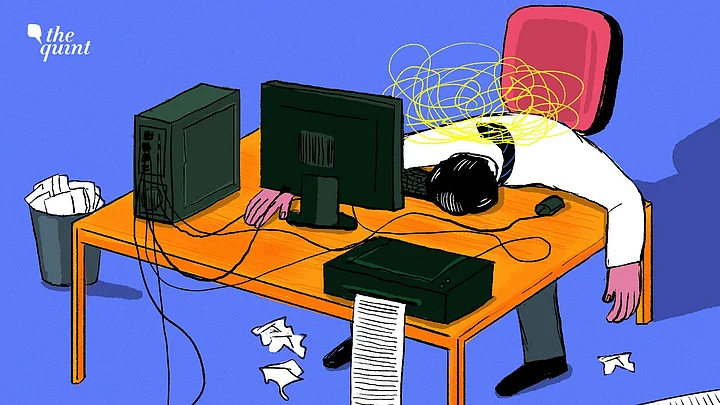The harrowing COVID-19 pandemic has rewired most of our approaches and behaviours. Remote working has revealed how skewed work-life balance can be and compelled people in the workforce to analyse their relationship with their professions.
Yet, an Indian CEO recently promoted (and glamourised) what can be best described as unhealthy work culture and toxic conditions in a workplace.
Shantanu Deshpande, Founder-CEO at Bombay Shaving Company and an apparent fan of hustle culture, claimed in a now-viral LinkedIn post that youngsters should put 18 hours a day in order to succeed professionally.
He further went on to say that he saw "a LOT of youngsters who watch random content all over and convince themselves that 'work life balance, spending time with family, rejuvenation bla bla' is important. It is, but not that early. That early, worship your work."
"Take it on the chin and be relentless" rather than "do random rona-dhona," he added.
The post has faced severe backlash, leading him to post an apology and quit LinkedIn.
As someone who is a fresher – or a youngster, if you will – and who belongs to Generation Z (those born from the mid to late 1990s), I cannot seem to wrap my head around hustle culture.
Hiding under the garb of the grind mentality, these capitalistic trends are increasingly justifying poor health, dysfunctional relationships, and perennial discomfort as long as professional gains are met.
Why Must I Work 18 Hours When I Am Paid for 8?
To put it plainly: Being a Gen Z person at the workforce is intimidating.
At a time when my generation is collectively grappling with hefty issues such as increased mental health ailments, several climate crises, and crumbling world economies, we don't need advice that is tone-deaf at best and toxic at worst. The tendency to work to the point of burnout neither sounds appealing nor is it something I'd ever encourage in my peers.
Ridiculing Gen Z's need to establish healthy boundaries in the workplace points to a flawed understanding of the work ethic. It fails to answer a pertinent question I keep ruminating on: Why must I work for 18 hours when I'm being paid for eight?
After being surrounded by people driven to anxiety attacks because of their work pressure, I've come to treat work-life balance as a basic requirement – not a privilege one can only earn with age.
18 Hours of Hustle – Only for Men?
As one LinkedIn user rightly pointed out, "How many women in this country can work for 18 hours a day in their office or enterprise without being criticised for neglecting their familial obligations? So 18 hours of hustle, but only for men, huh? And while they hustle, who takes the burden of their domestic duties?"
Another Twitter user wrote, "Career advice such as work 18 hour days just goes to show how work is still considered a male domain. Working women have a double shift to handle – they are already working 18 hours or longer days. To pay heed to such "expert" advice their days will need to be 48 hours long!"
Need I say more? There is no dearth of people or institutions pushing the Gen Z to encourage discomfort or toxicity. But it is time we focus on the cost of putting in 18-hour work days, be it on a domestic, social, or mental level.
For me, work is worship. But so is rejuvenation. Sometimes it's a struggle to find that balance, but with it, comes a well-rounded professional satisfaction.
Another LinkedIn user commented, "Trust me.. any given day I will lead a team of youngsters who have their domestic and personal life sorted rather than a bunch of guys who put their lives on hold and slog it out only to find themselves burnt out by mid 30s.. success measured in terms of money or corporate achievements might be important to some, but promoting a healthy lifestyle, including balanced work hours, is important for all.."
Workplace mental health is an issue of cardinal importance and I, for one, am relieved that my generation is finally able to broach the subject and demand a sensitive and just playing field.
(At The Quint, we question everything. Play an active role in shaping our journalism by becoming a member today.)
